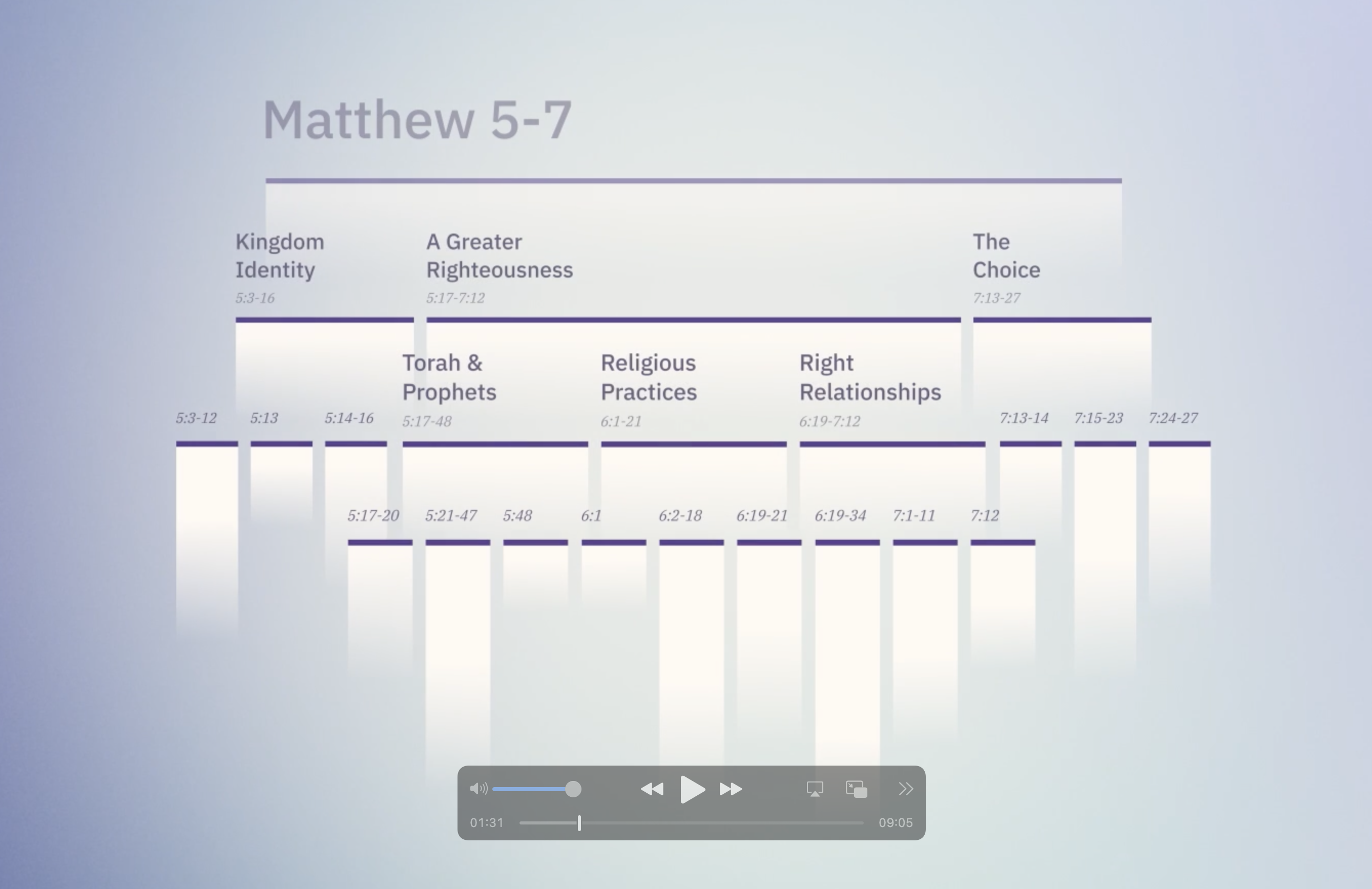Clint Cozier
@ccozier
Clint Cozier
@ccozier
Jesus on Matt 7:5
Jesus is drawing attention to a curious feature of the human race in which a profound ignorance of oneself is so often combined with an arrogant presumption of knowledge about others, especially about their faults. First gets the priorities right; that which matters most is to deal with the plank. The would-be helper’s first priori
... See more
Structure of the Sermon on the Mount from Bible Project
The Golden Rule and the Sophists
Some have concluded (e.g., R. G. Hammerton-Kelly, IDB Supp., p. 369) that the “golden rule” originated in the Sophist movement in Greece (5th cent. b.c.), was taken over by Hellenistic Judaism, and from there found its way into early Christian teaching. It is incontestable that Christianity derived this principle fro
... See moreis that we must refrain from judging others; we must humbly acknowledge that we have no access to other people’s hearts and that judging people is the sole prerogative of God.21
Isaiah 11:1-2
Ah, you who make iniquitous decrees,
who write oppressive statutes,
2 to turn aside the needy from justice
and to rob the poor of my people of their right,
that widows may be your spoil,
and that you may make the orphans your prey!
Isaiah 11:3b-5
He shall not judge by what his eyes see,
or decide by what his ears hear;
4 but with righteousness he shall judge the poor,
and decide with equity for the meek of the earth;
he shall strike the earth with the rod of his mouth,
and with the breath of his lips he shall kill the wicked.
5 Righteousness shall be the belt around his waist,
and fa
... See moreHillel and the Golden Rule:
The statement attributed to Hillel, "What is hateful to you, do not do to your neighbor; this is the whole Torah; all the rest is commentary," appears in the Babylonian Talmud, Tractate Shabbat 31a. Here's the relevant passage:
> אָמַר הִלְיוּן אַבְטָא רַבּוּת שֶׁמָּה נָבוֹן וּמָה נָבוֹן אֵלֶּה שֶׁנֶּאֱמָר לְךָ בְּשַׁבּ
... See moreBecause Wants to Hear the Prayers of His People
Genesis Rabbah 45 (28C): Why were the matriarchs (of Israel) barren? R. Levi (ca. 300) said in the name of R. Shela of Kefar Temarta (the village of dates; ca. 280) and R. Helbo (ca. 300) in the name of R. Yohanan († 279), “Because God desired their prayers and their words.”—The same is found in Midr.
... See more